Search for Bulgarian split squats is soaring - I tried them for a week and they improved my balance, strength and core
An underrated move, if you ask me.
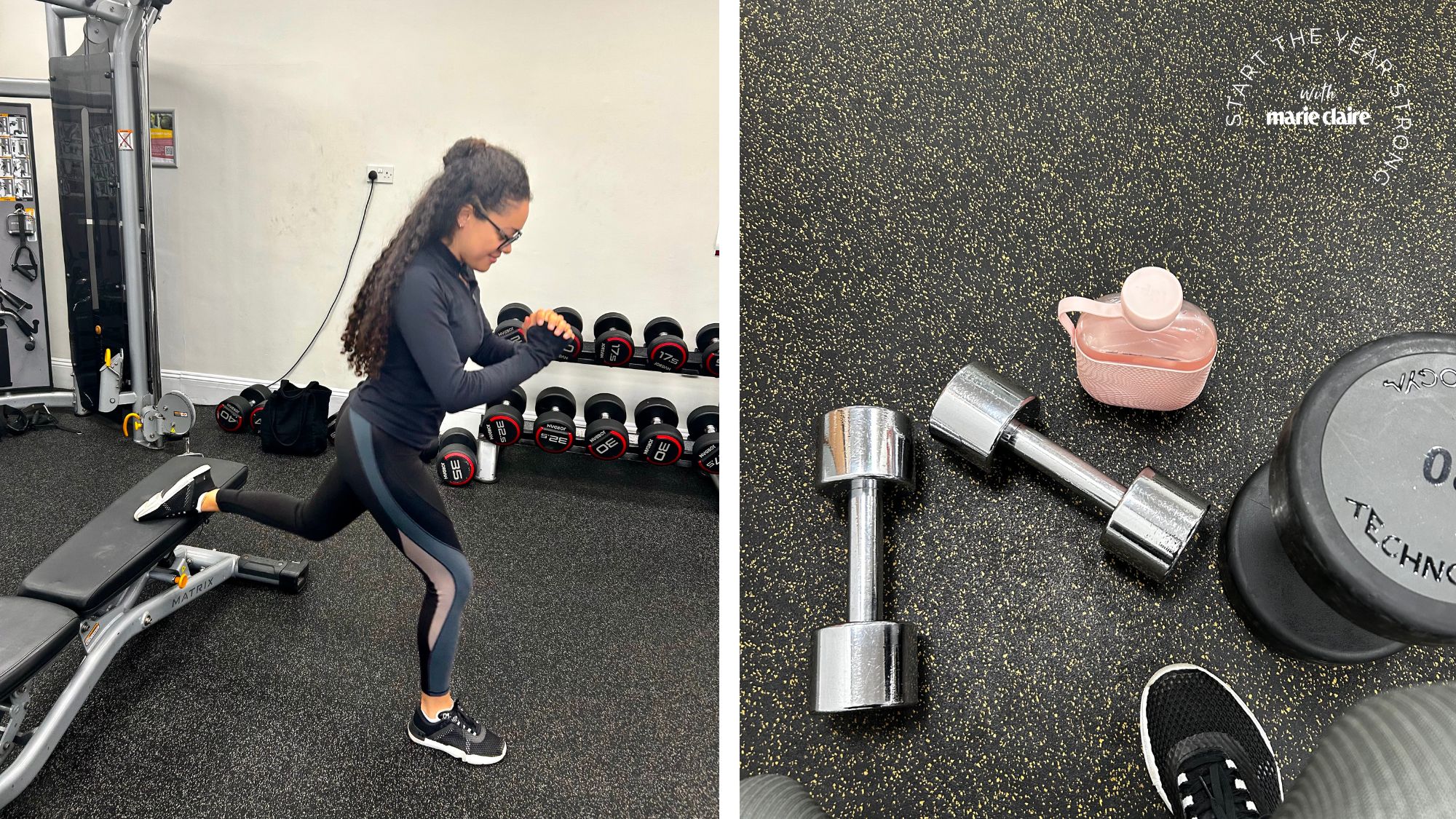

By now, you’re probably well acquainted with the bodyweight squat, which you do daily without even realising it. That's right - you're squatting every time you sit down on the sofa and then stand up again. But have you heard about the arguably more effective single-leg squat variation, the Bulgarian split squat?
In my humble opinion, when it comes to strength training, compound movements like deadlifts, lunges and squats are the crowning glory of all workouts (and for plenty of reasons). For starters, they work multiple muscles at any one time, can streamline your workout and still deliver results. In short: they’re nothing short of magical. And a Bulgarian split squat is arguably more effective, working your hamstrings, calves, quads and glutes while testing your balance, strength and core.
Never heard of one before? The compound move involves placing a leg behind you on an elevated surface, like a bench or stepper, while squatting on your other. Thanks to the many benefits of the workout move, it's probably obvious why I decided to add them to my weekly exercise rotation, but rising Google search also cemented it. That's right - more and more people have been searching Bulgarian split squats over the past twelve months as an easy move to incorporate when strength training at home.
So, I took on a challenge - to complete 60 Bulgarian split squats every day for seven days to see how I felt. For my honest Bulgarian split squat review and pointers on how to ace your form from top experts, keep scrolling.
Do check out our guides to strength training for women, strength training for beginners and low impact strength training exercises, while you’re here, and read what happened when Marie Claire UK’s Senior Health Editor tried strength training every other day.
My honest Bulgarian split squat review? I'm a convert - here's why
What are split squats?
First things first: if you enjoy bodyweight exercises, you’ve probably already heard (or performed) a split squat. This static exercise involves placing one leg in front of you and one leg behind you and lowering your body towards the ground.
“This exercise predominantly targets your glutes and quads,” Ciana Glynn, personal trainer, holistic health coach and founder of The Wellness Primer tells us. “For this movement, you focus on one leg at a time, increasing muscle activation. This helps to increase the growth of muscles and is a very effective exercise to add to your leg workout.”
Marie Claire Newsletter
Celebrity news, beauty, fashion advice, and fascinating features, delivered straight to your inbox!
But in this instance, we’re focusing on Bulgarian split squats, which are differently. As Glynn tells us: “A Bulgarian split squat is a single leg squat variation that uses your bodyweight to activate muscle groups throughout your entire body. Bulgarian squat places a significant load on the working leg, requiring it to bear most of the body's weight.
“Both exercises require balance and core activation,” Glynn says. “The main difference between them is that in a split squat position, your stabilising leg comes out in front of you. In a Bulgarian split squat, your stabilising leg is behind you while remaining on an elevated surface.”
How do you do a Bulgarian split squat with proper form?
When it comes to any exercise, having the correct form is crucial. It can help you increase your performance, maximise your gains and (perhaps most importantly) boost your chances of preventing injury.
To perform a Bulgarian split squat, Glynn advises:
- Grab a bench and start by standing about 2 feet width apart in front.
- Bend your right leg and lift it up behind you, placing your foot on top of the bench. Keeping right foot shoulder width apart, ensuring you are in a comfortable position before continuing. Engage your core, roll your shoulders back and lean slightly forward at the waist, beginning to lower down on your left leg, bending the knee.
- Push up through your left foot to return to standing.
It’s important to flag here that there are two ways of doing Bulgarian split squat and this all depends on whether you're keen to do glute exercises or target your quads with leg exercises.
Bottom line: “Both variations are effective and it ultimately comes down to personal preference,” Glynn shares.
- For glutes: “If your foot is further from the elevated surface, you’ll place more emphasis on your glutes and hamstrings,” Glynn explains.
- For quads: “If your foot is closer to the elevated surface, you’ll activate your quads more,” Glynn adds.
What are the benefits of Bulgarian split squats?
In short: there are many. As a lower body exercise, Bulgarian split squats help to strengthen your quads, hamstrings, glutes, and calves.
But it’s not just your bottom half that will see the benefits. According to Glynn, Bulgarian split squats are also known to improve:
- Endurance
- Strength — in fact, research found a Bulgarian split squat leads to high muscle activity in the hamstring muscle and gluteus maximus.
- Cardiovascular health
- Core strength, “As core activation is a big part of the exercise, it can be a great way to burn fat and tone up your tummy too.”
- Balance.
Glynn also highlights that the Bulgarian split squat could also benefit those who struggle to do a traditional squat, as she says the latter can put an added weight load on your lower back. Whereas: “Bulgarian split squat puts more emphasis on the legs, removing any pressure and strain on the back,” Glynn adds.
I tried Bulgarian split squats every day - my thoughts
Days one to three
Generally speaking, I like to split my workouts out based on what areas of the body I’m training. So my weekly workout usually includes an upper body training day ft. one of the best home arm workouts, a lower body session and a full body session, along with a 20-minute Pilates workout and some type of running. I tend to do three sets of 10 reps per exercise with some rest in between. So to make this challenge manageable (and fit in with my BAU programming) I decided to do the same with my Bulgarian split squats.
When day one rolls around, I tick off my squats at the gym after my upper body workout, grabbing a bench and following Glynn’s advice to really hone in on my form. After ten reps on both legs, the burn is very (very) real but especially in my quads. I complete my second set and have a little rest. By set three, let’s just say I’m glad this is over.
Day two, I’m working from home and after eating my breakfast, I decide to complete my squats for the day. I don’t have an at-home bench, but I do have a sofa. I get into position, elevating one leg behind me and this time, I hop a little further away to really hit my glutes. Ten reps on each leg is all it takes to know my bottom half is well and truly awake. I complete three sets on each side and wobble back to my desk.
I wake up on day three feeling the effects of my new-found exercise (thanks, DOMS). But I also feel it in my core. I’m at the gym again today taking on a lower body workout with the likes of squats, lunges and deadlifts thrown in. I use my Bulgarian split squats as part of my warm up exercises, completing my sets in quick succession (while concentrating on my form) to get my heart rate up and to coax my legs into action. It works a treat. I leave the gym feeling stronger (and with a skip in my step).
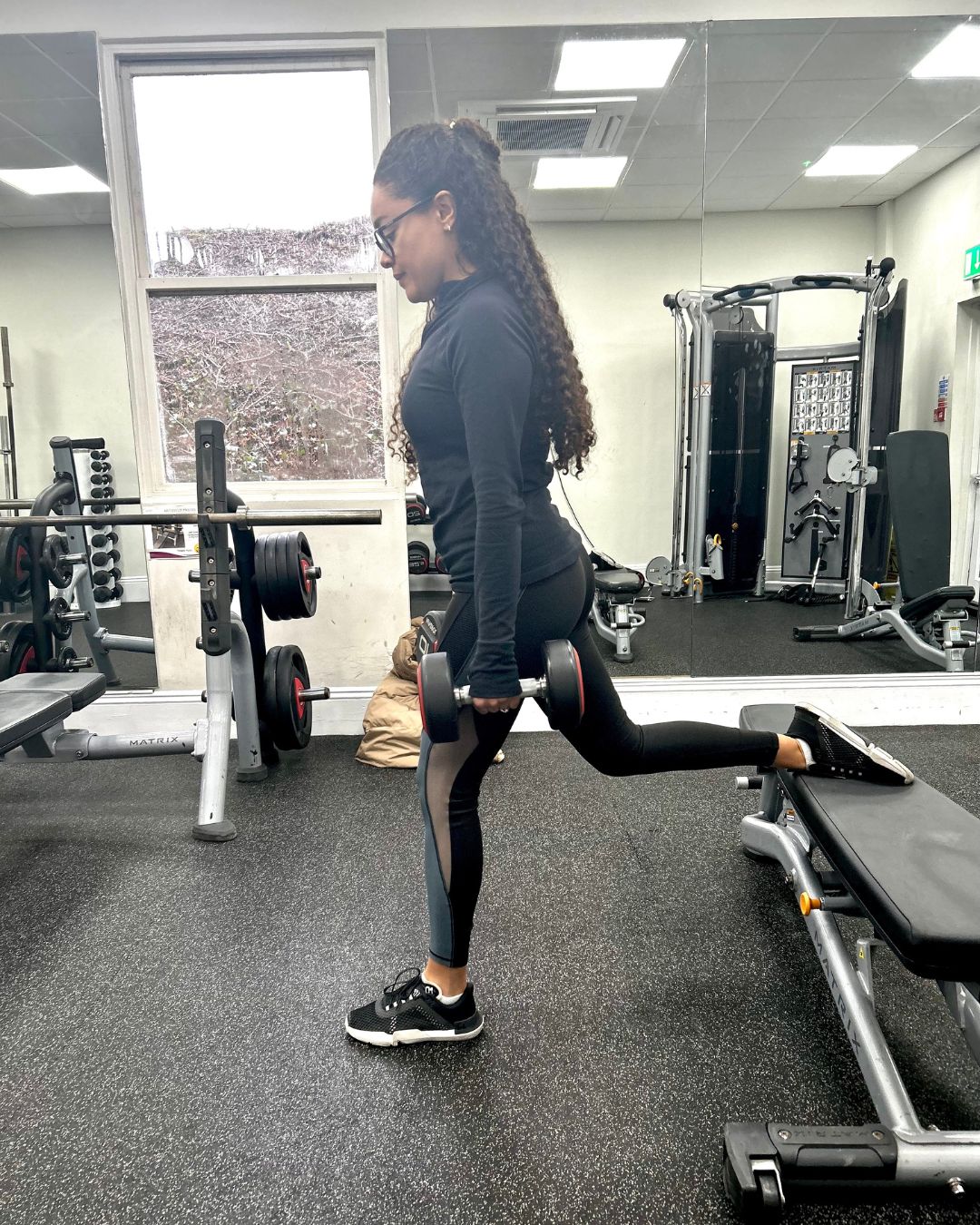
Becks trying a split squat for this review.
Days four to seven
Now I’ve gotten into the swing of things, I try mixing things up by carefully implementing some dumbbell exercises into my Bulgarian split squat practice (in other words, I hold a dumbbell in each hand while squatting). It comes as no surprise that this makes squatting double (if not triple) as hard. I put myself through this on days four and five, but on both days, the harder intensity exercise feels like it's over almost as quickly as it started.
By days six and seven, instead of intensifying the weight, I dial up the duration, holding the squat for three seconds at the bottom and then really engaging my glutes at the top for the following three seconds. IMHO it’s just as satisfyingly physically challenging as the days before.
At the end of the week, my balance on one leg feels less all over the place, my core is stronger and my glutes and quads feel more powerful as bodyweight Bulgarian split squats feel easier to complete than ever before.
The conclusion
Over the years, I’ve tried many workout challenges. Be it strength training for ten minutes every day or wall Pilates. But I found Bulgarian split squats to really fit in seamlessly with my training.
I don’t know whether this could be because completing them is over in a matter of minutes or that they can be adapted easily depending on what weight, time or how much energy you have. But either way, it feels like you’re training smarter, not harder as the move conditions your whole lower body, core and balance (just another reason why compound movements like the Bulgarian split squat, will always be a firm fave).
I’m going to be honest: I don’t know if I can commit to doing that many squats daily (rest days are important, you see). But I do know that they will be added to my weekly movement rota for the foreseeable. Watch this space.
Shop MC UK's go-to workout kit now:
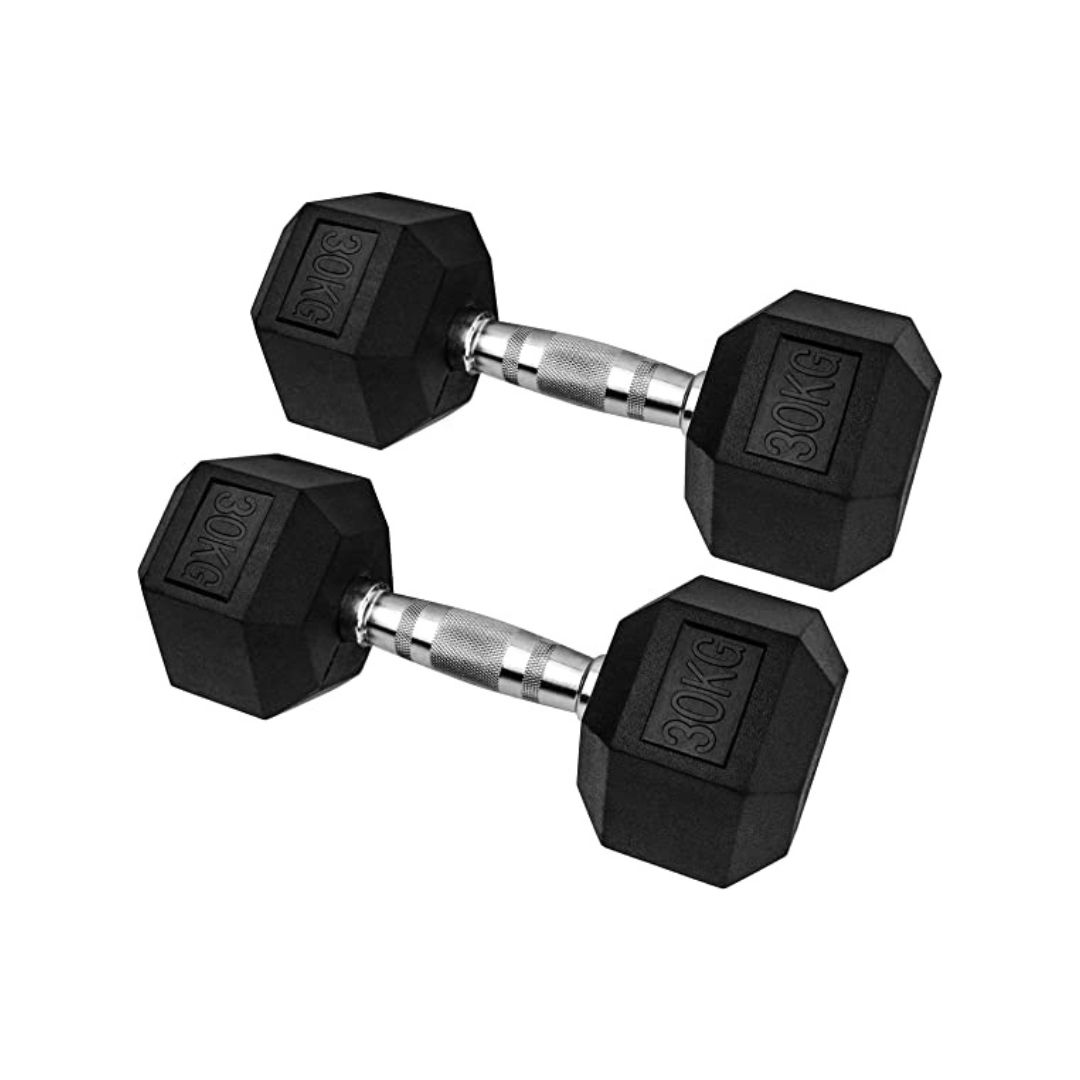
These weights tick all the right boxes - they're affordable, as weights go, but good quality, as well, offering easy, non-slip grip. Just what you need when you want to add some extra resistance to those squats.
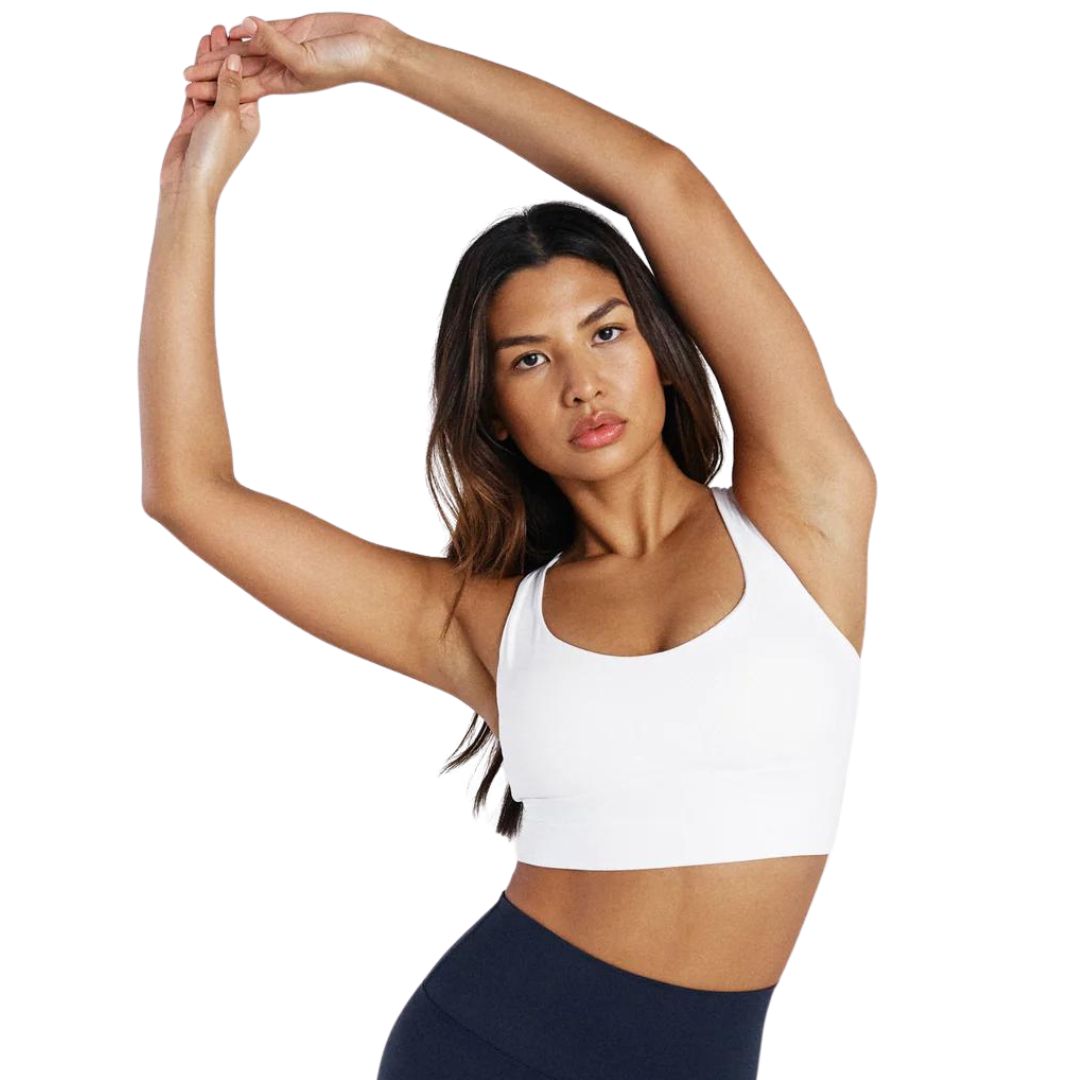
Specifically designed for lunging (and lounging) up your workout wardrobe with this soft-to-the-touch sports bra that will support you in all the right places. Plus, Adanola uses 100% recyclable packaging, a small sustainability win.
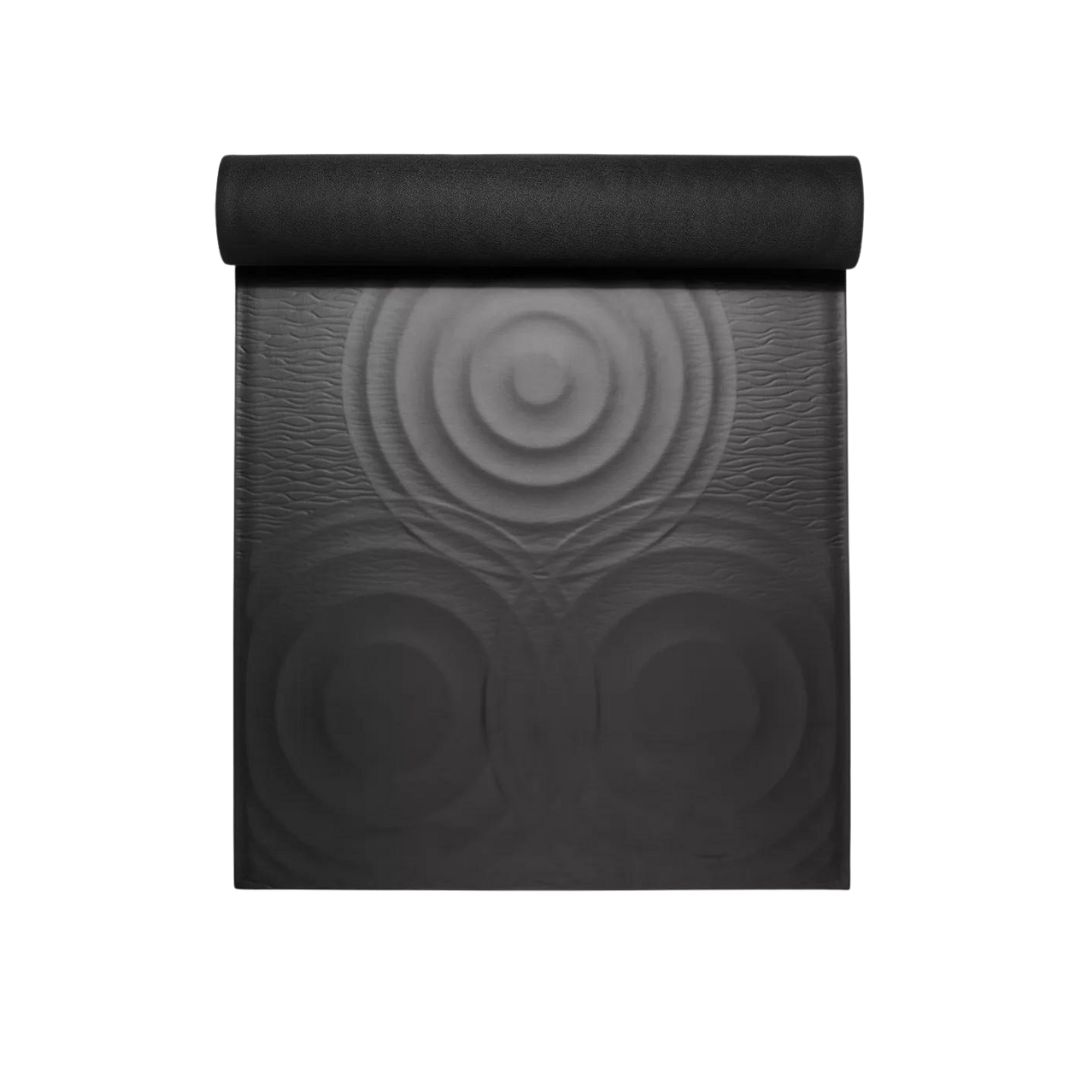
We love cushioned yoga mats that make working out that bit easier on your joints, and this extra-springy option from lululemon gets our vote. An investment, but a gym kit investment for life.
Why are Bulgarian split squats so hard?
Doing anything on one leg makes an exercise harder. And when it comes to Bulgarian split squats, this is no different.
“Keeping one leg elevated throughout the exercise means it requires much more balance control and can be challenging for those with not the best balance,” Ciana Glynn, personal trainer, holistic health coach and founder of The Wellness Primer says. “However, this also is a benefit as it is a great way to improve hip and knee stability. It is not an easy exercise to get right straight away so it is totally natural if it takes a few times to get the correct technique and ideal position.”

Rebecca, or Becks, is a freelance journalist with more than ten years of experience in the industry. She specialises in all things health and lifestyle and has written for a number of brands including Women's Health, Stylist, the Evening Standard, Good Housekeeping, The Telegraph, Live Science, Tom's Guide and Fit&Well. Becks also writes copy for a number of brands and small businesses.
When she's not weight training, tracking down the best gym leggings, reading a book or at her desk typing away, you'll find her in the kitchen perfecting a new recipe or bake.
-
 Prince Harry reportedly extended an 'olive branch' to Kate and William on latest UK trip
Prince Harry reportedly extended an 'olive branch' to Kate and William on latest UK tripBig if true
By Iris Goldsztajn
-
 How Prime Video is protecting Blake Lively amid her new movie promo
How Prime Video is protecting Blake Lively amid her new movie promoAn understandable move
By Iris Goldsztajn
-
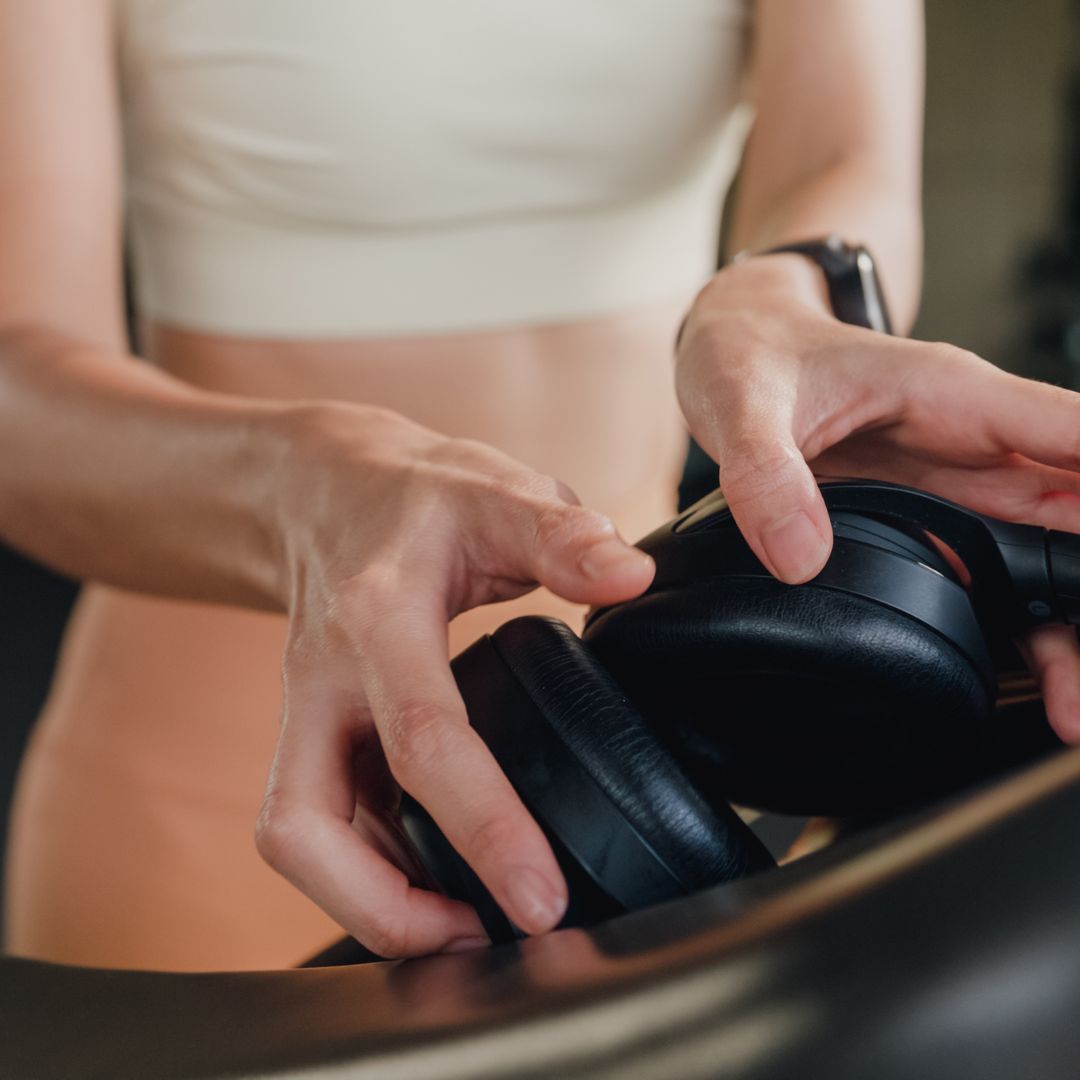 It's the must-have bit of fit kit of the year - a fitness expert shares their top 5 tips for choosing a walking pad
It's the must-have bit of fit kit of the year - a fitness expert shares their top 5 tips for choosing a walking padThis year's fitness must-buy.
By Katie Sims
-
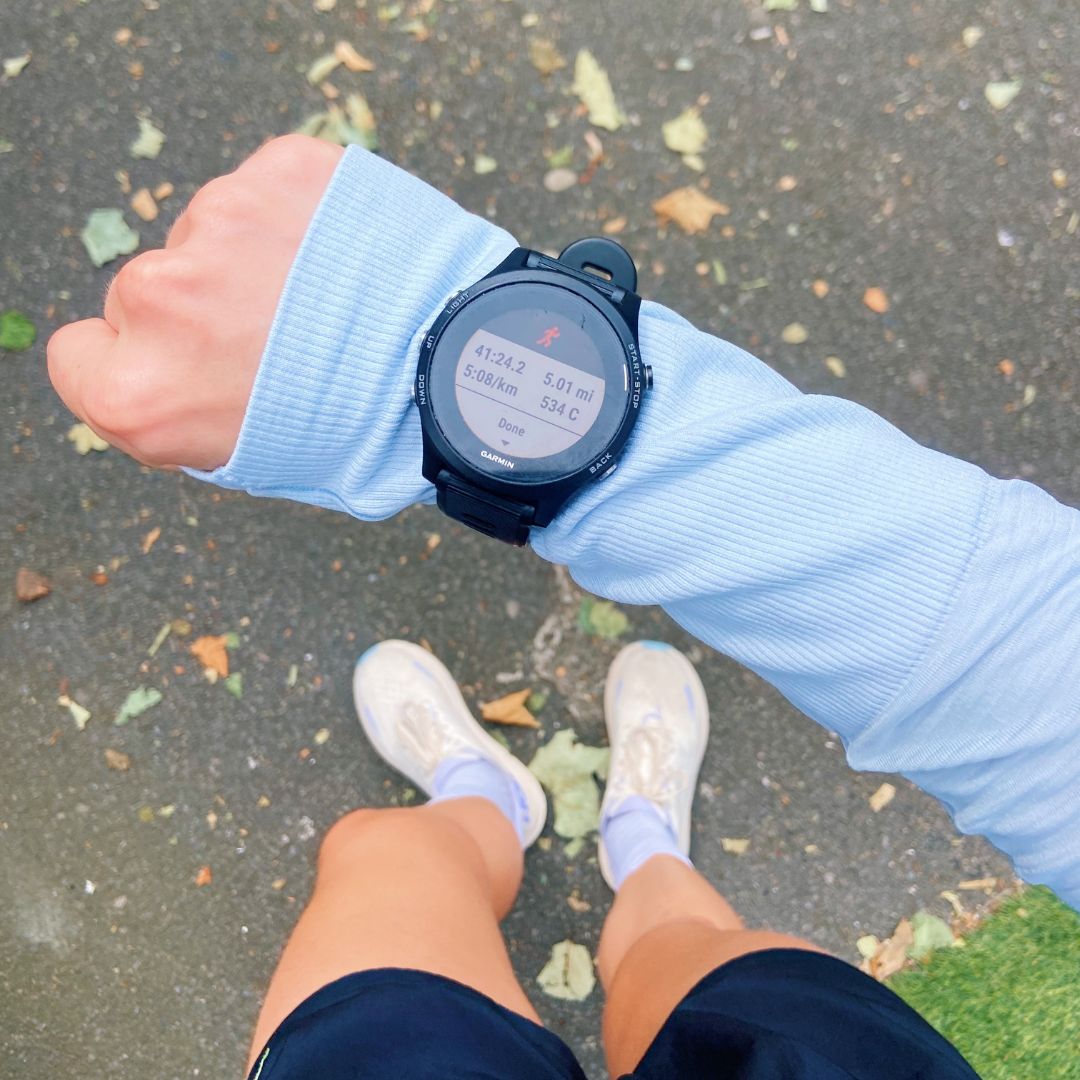 These tricks for building a simple yet effective morning workout routine have drastically improved my fitness
These tricks for building a simple yet effective morning workout routine have drastically improved my fitnessIt doesn't need to be all 5am starts and ten miles for breakfast.
By Ally Head
-
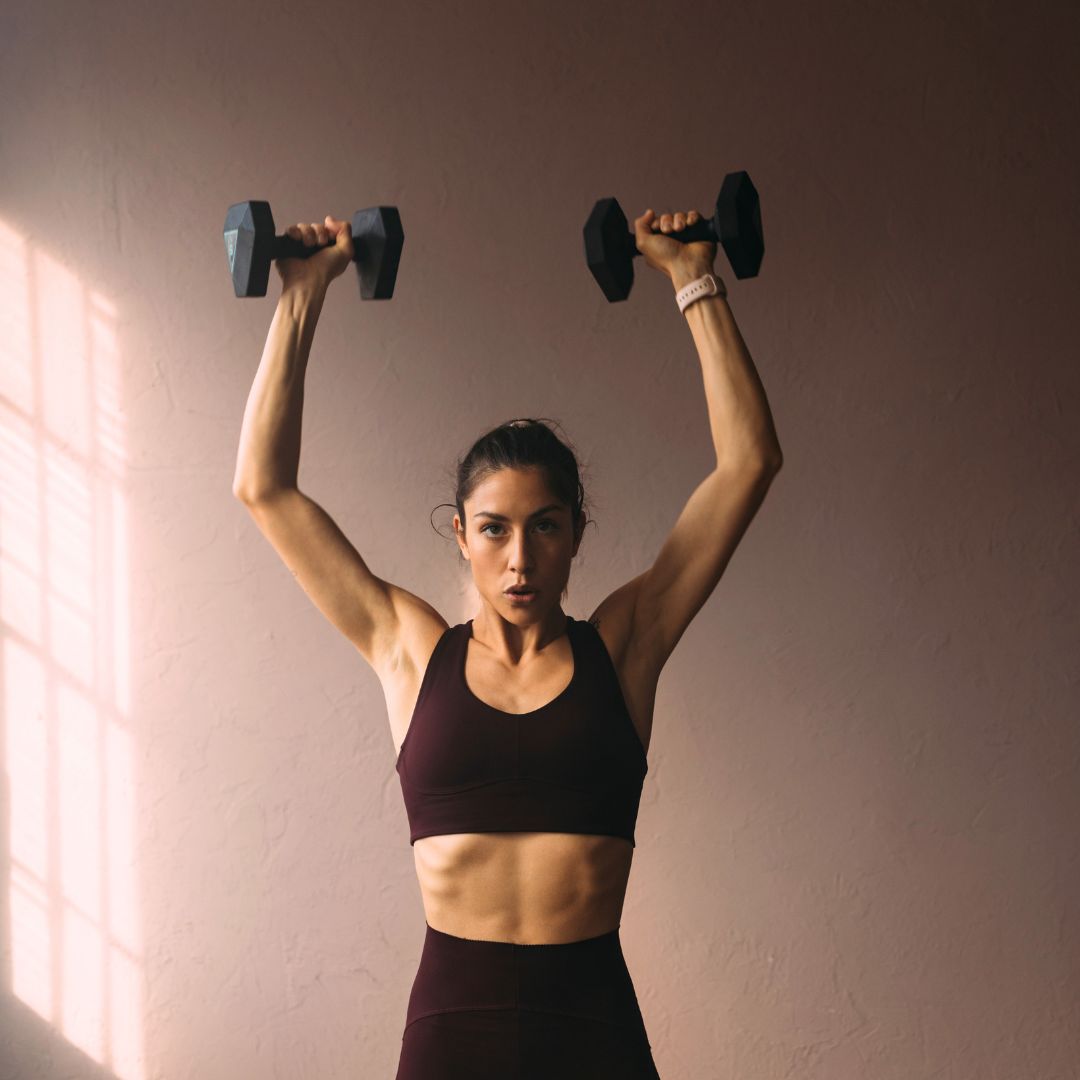 Shoulder exercises promise to improve both your posture and strength - 5 to add to your next workout
Shoulder exercises promise to improve both your posture and strength - 5 to add to your next workout*Bookmarks for later*
By Chloe Gray
-
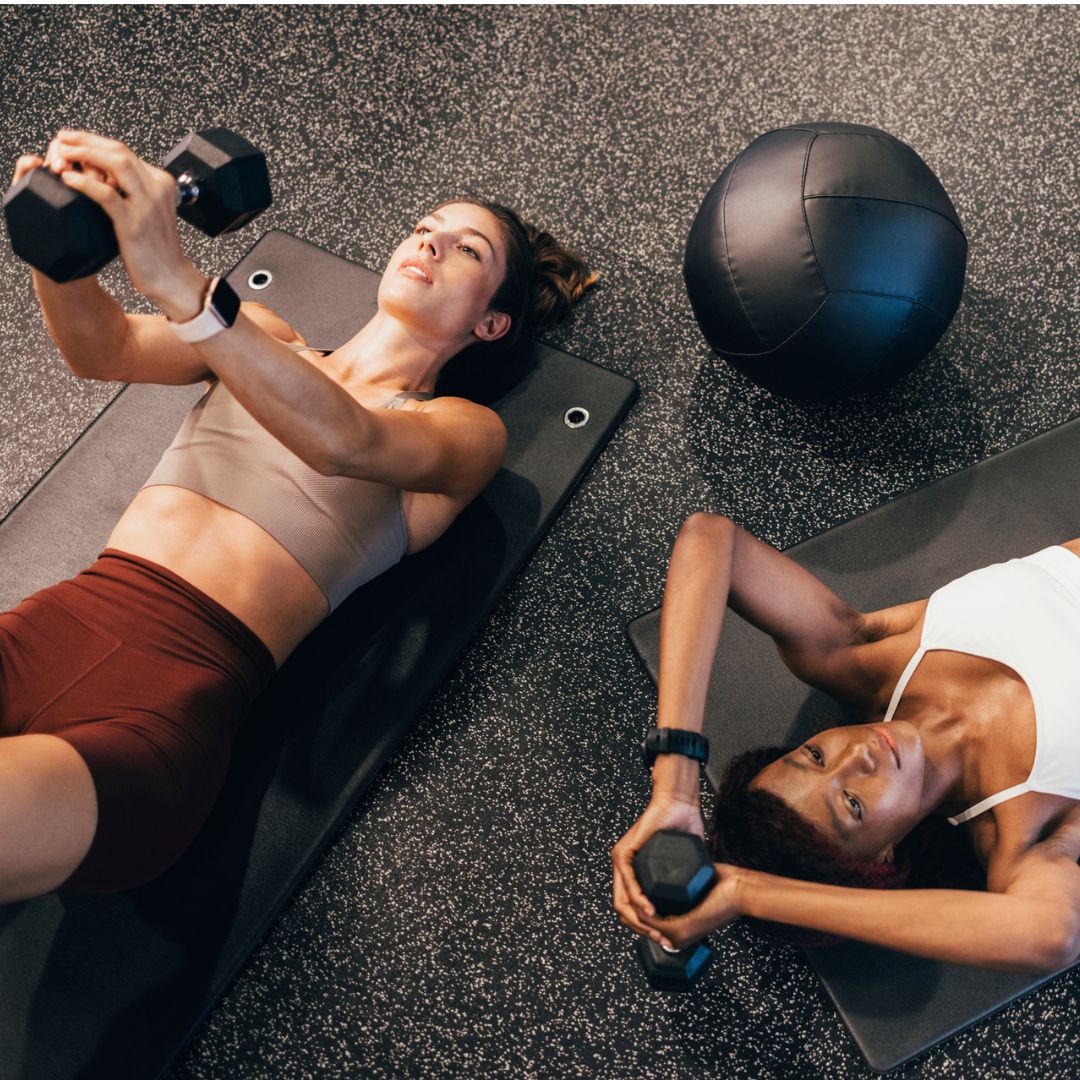 Low impact strength training is one of the most popular workouts of the year – how it promises to boost muscle and metabolism
Low impact strength training is one of the most popular workouts of the year – how it promises to boost muscle and metabolismYour need to knows.
By Abbi Henderson
-
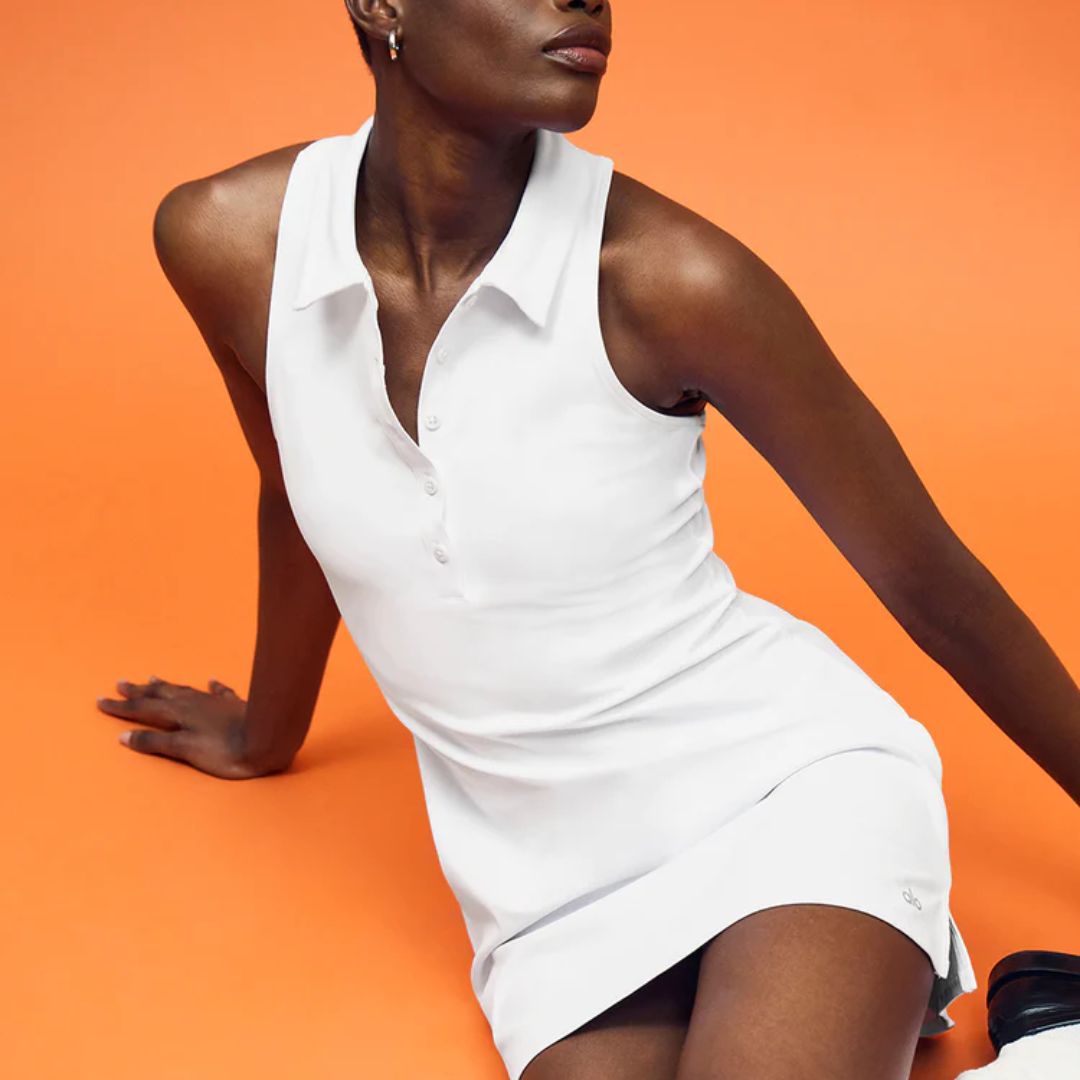 PSA: you can save up to 70% in the Alo Yoga sale - including the dress of my tenniscore dreams
PSA: you can save up to 70% in the Alo Yoga sale - including the dress of my tenniscore dreamsMCUK's editors rave about this kit
By Valeza Bakolli
-
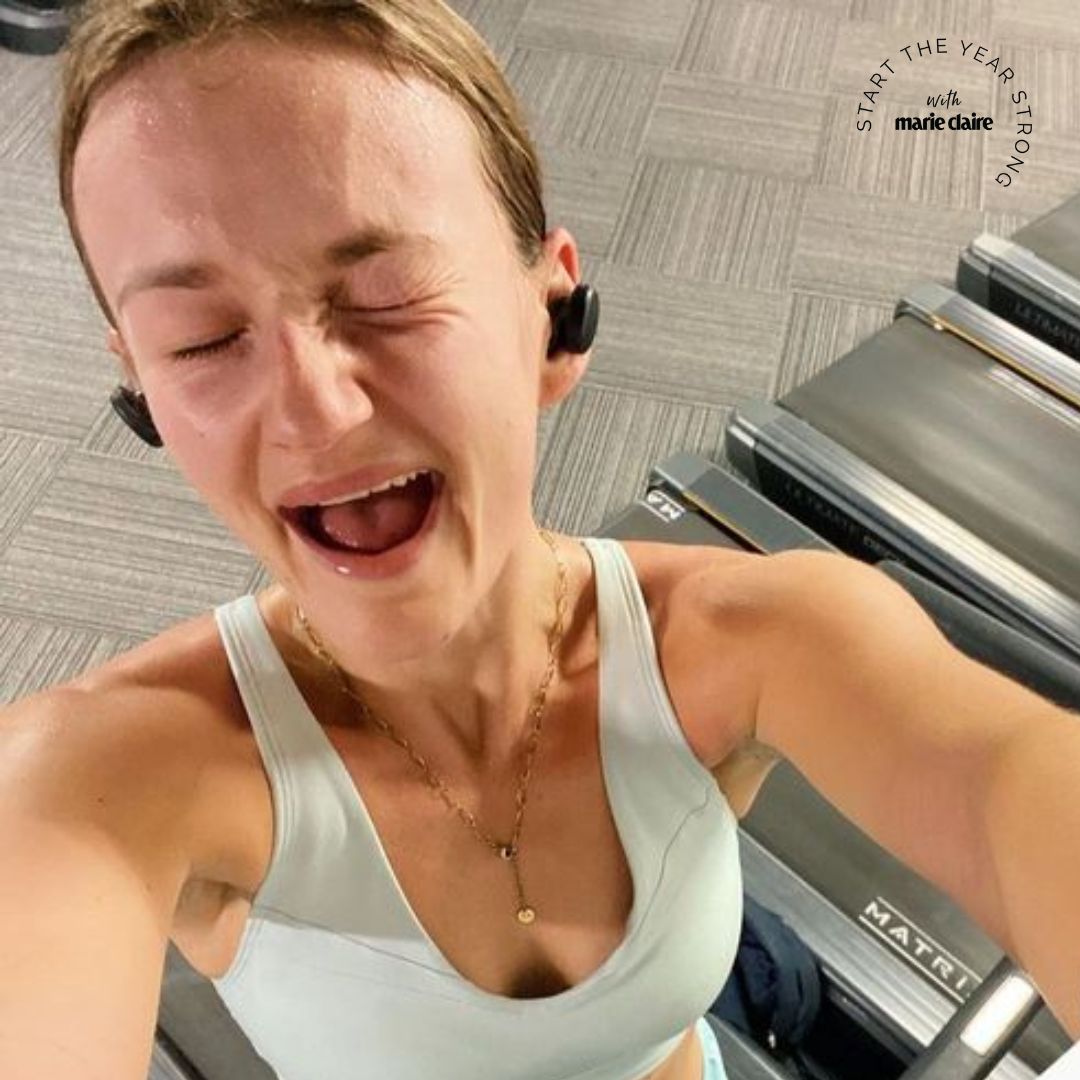 8 best high impact sports bras for running, HIIT and more that Fitness Editors genuinely rate
8 best high impact sports bras for running, HIIT and more that Fitness Editors genuinely rateBecause high-impact exercises require proper support
By Chloe Gray
-
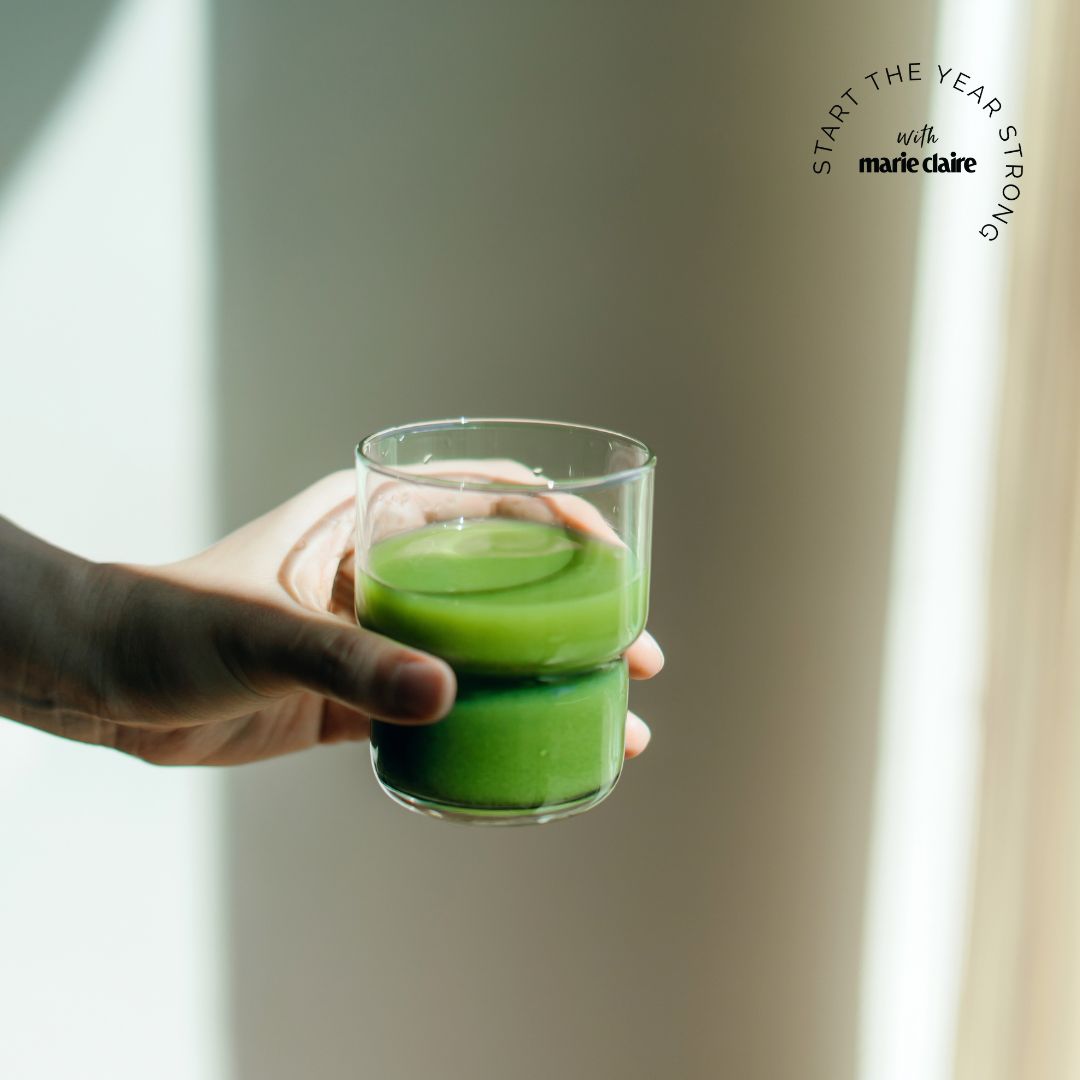 I'm a Health Editor who's sceptical about nutrition fads. My greens powder review? The viral Tiktok trend blew my mind
I'm a Health Editor who's sceptical about nutrition fads. My greens powder review? The viral Tiktok trend blew my mindHere's why.
By Ally Head
-
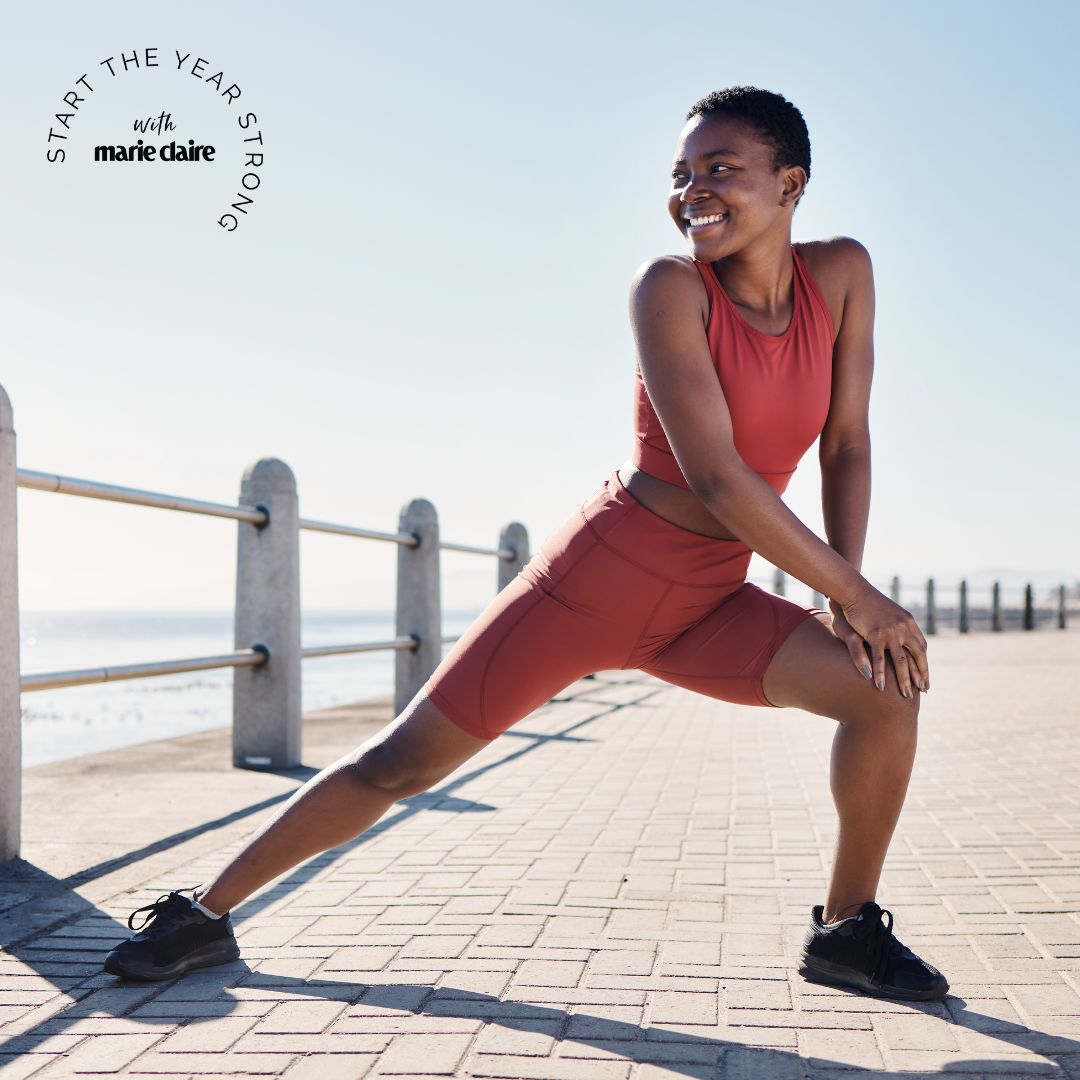 Cortisol-friendly workouts are trending, promising to aid fat loss, fitness and focus
Cortisol-friendly workouts are trending, promising to aid fat loss, fitness and focusTop exercises for stress-busting, this way.
By Rebecca Shepherd
-
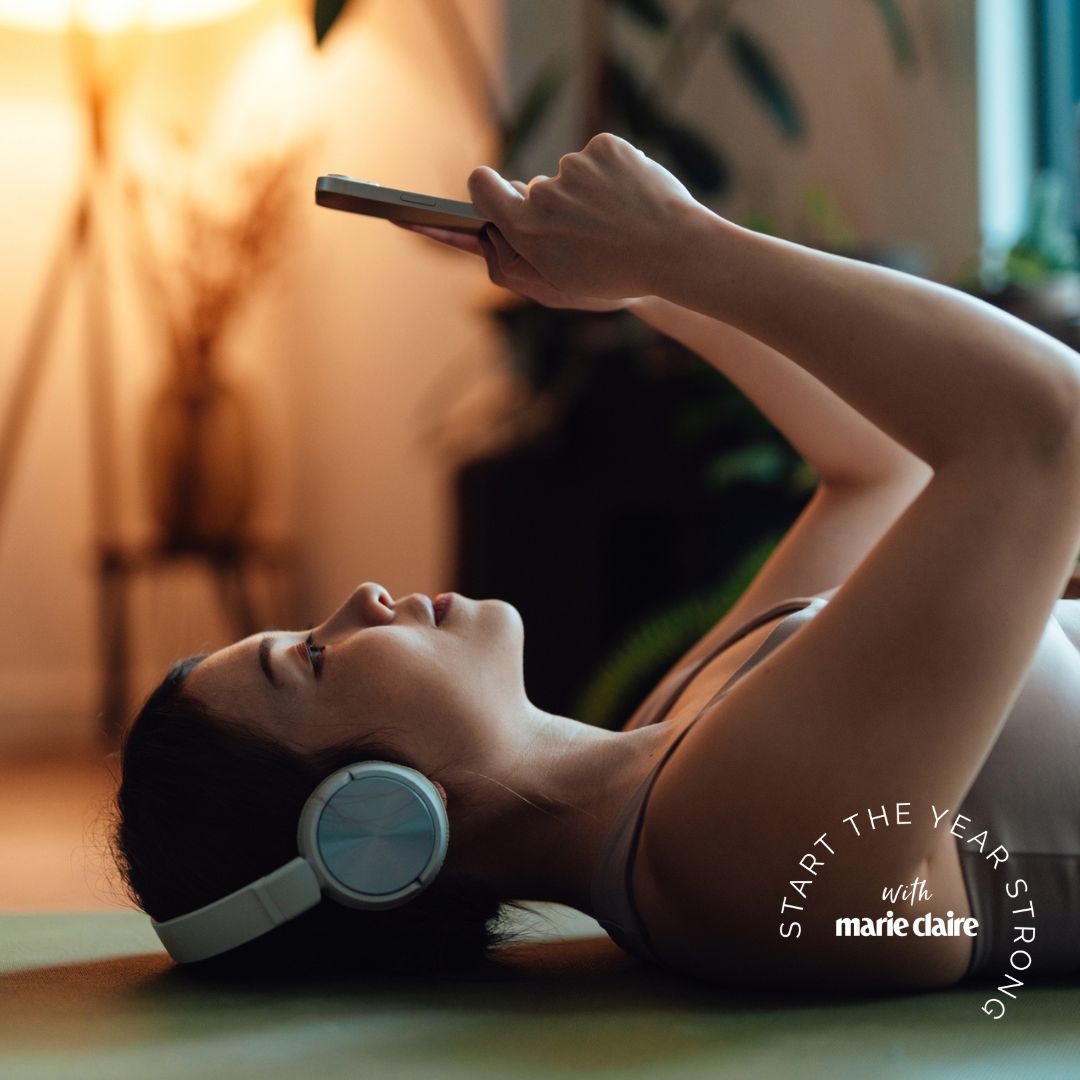 How to do wall Pilates, the workout that's been dubbed the most effective of the year
How to do wall Pilates, the workout that's been dubbed the most effective of the yearGive this one a go tonight.
By Ally Head